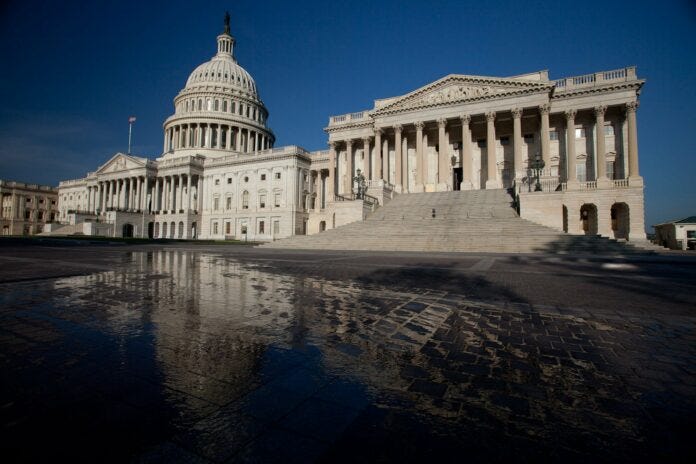The Senate’s amendments to H.R. 1, the One Big Beautiful Bill Act, passed on July 1st,, with Vice President JD Vance’s tie-breaking vote. The House’s original bill, while far from ideal, aimed to extend Trump’s 2017 tax cuts, boost border security, and curb some federal spending, securing a narrow 215-214 vote.
However, the Senate, led by Majority Leader John Thune, tacked on a $5 trillion debt ceiling hike in a marathon “vote-a-rama” session., $1 trillion more than the House’s $4 trillion, ignoring warnings from deficit hawks.
The Senate’s version introduced gimmicks like “Trump accounts” for newborns and a $40,000 SALT deduction cap (reverting to $10,000 in 2030), which mostly benefits high earners in blue states. The Congressional Budget Office estimated the bill would add $3.3 trillion to deficits over a decade, a figure Senate Republicans dubiously disputed with “magic math.”
Back in the House, the battle to pass this Senate-altered bill was a chaotic mess. Speaker Mike Johnson faced a revolt from fiscal conservatives such as Thomas Massie, Chip Roy, and Andy Biggs, who saw the Senate’s changes as a betrayal of their campaign promises to shrink government.
On July 2nd, a procedural vote to advance the bill teetered on collapse, with ten Republicans initially opposing it. Trump’s arm-twisting and late-night negotiations flipped most holdouts, including Lauren Boebert, but Massie stood firm with Brian Fitzpatrick, voting against the final 218-214 passage on July 3. House Minority Leader Hakeem Jeffries’ record-breaking 8-hour-44-minute speech couldn’t stop the steamroller.
Ultimately, the Senate’s meddling transformed a bill with some conservative merits into a bloated, debt-fueled compromise that critics say prioritized Trump’s agenda and July 4th deadline over principle. And Trump signed the Bill into law on Independence day as planned.
See page 7 for a detailed analysis. Read the text of the Bill at:
https://www.congress.gov/bill/119th-congress/house-bill/1/text

